WARD 1
Vying for this position are Anika Bowie, Yan Chen, Travis Helkamp, James Lo, Lucky Tiger Jack Rosenbloom, Omar Syed, Suz Woehrle, and Jeff Zeitler.
Anika Bowie
Yan Chen
Please describe your qualifications.
As an immigrant and research scientist, I have sharpened my problem identification and solving skills ever since I arrived in America 34 years ago. Our society is stressed with problems but elected officials haven’t been clearly assigned specific tasks, therefore, they can’t be accountable for the failure. Let’s change that. We need to hold the elected officials accountable for their particular responsibilities and ask them to solve particular problems in order to divide and conquer problems.
If elected, what are your top priorities? How will you measure success?
My primary priority will be crime reduction. I will measure my success by a reduction in crime statistics when comparing before and after taking the office. My second priority is to work with the Public Works department to strengthen its services so that there would be a drastic reduction in complaints. Finally, I want to increase our stocks of condos and townhouses so that renters could have an opportunity to become homeowners when they can demonstrate that they have been responsible renters.
As a council member, you have a responsibility to both your specific ward and the city as a whole. How do you intend to manage competing priorities when they arise?
I intend to manage competing priorities by using resources fairly rather than excessively. Of course, if I identify a gross neglect towards our Ward in the past, then I will ask for fair investment to be made for the past mistakes. I don’t believe money can solve all the problems, but I do believe a combination of money and effort can go a long way. I will put effort into every step for our Ward with the hope that if our Ward does better, our City will do better too.
What specific strategies would you propose for creating affordable, sustainable housing opportunities for those who are currently unhoused?
I will have a two-pronged approach to solve this problem. As a City, we have to have a healthy stock of affordable housing for everybody who wants to be a part of a broader community. For currently unhoused people, we need to be ready to help them when they are ready to be transitioned. I will work with the State and the County to have more street workers so that the unhoused people have an opportunity to be housed when they are ready to join the broader community.
Please describe a time when you stood up for a cause, idea, or policy you believed in, even in the face of popular opposition.
As a scientist, I had ten destitute years because I didn’t believe in the direction my field was going. I thought my field was trying to fly before it knew how to walk. Before properly understanding the basics and making sure the controls were solid, we were trying to jump into a new direction. After ten years of struggle, I managed to prove a massive gap in our current understanding. That experience taught me how to sustain isolation and rejection without losing my conviction of what is right.
If elected, how will you intentionally work with BIPOC communities and center their needs in any policy-making efforts?
I first acknowledge that this community has faced unprecedented biases through American history. We also have to acknowledge that whatever the policies that have been implemented haven’t worked very well. In fact, the racial poverty gap is wider in our state than in the south even after all the investment. We shouldn’t double down on the old strategies but it is time to analyze why the policies haven’t worked well and devise new strategies with the BIPOC community.
Travis Helkamp
No website
James Lo
Lucky Tiger Jack Rosenbloom
No website
Omar Syed
Please describe your qualifications.
My name is Omar Syed. I am a father and husband, a St. Paul small business owner, renter, and community leader. I am running to bring your voice to city hall. My candidacy brings a unique experience and much needed voice on the council. As a St. Paul Planning Commissioner, I’m the only Ward 1 candidate with city-level experience working on local issues like zoning and transportation. As a small business owner, I understand the needs of small businesses across our city and will ensure they are supported. If elected, I would be the first Somali American on the St. Paul City Council and will help the city deliver better services to meet the needs of immigrants and refugees I’m committed to building a city where every voice matters.
If elected, what are your top priorities? How will you measure success?
Affordable Housing - As a member of the Zoning Committee on the St. Paul Planning Commission, I know how to bring in good development, protect renters, and make housing more affordable. Public Safety - We need a public safety plan for St. Paul that includes community investments, better police relations, stronger municipal presence on the Green Line, and improved accountability. Community Engagement - I will be a responsive and accessible council member to all the communities of our diverse Ward 1.
As a council member, you have a responsibility to both your specific ward and the city as a whole. How do you intend to manage competing priorities when they arise?
Ward 1 - with Rondo, Frogtown, and Cathedral Hill – is the most diverse ward in Saint Paul. We deserve a council member who will be responsive and accessible to all of us. I will be a leader who always shows up, listens with an open mind, and ensures your voice is heard in our policymaking. I will always be an independent voice on the council, someone who will bridge divides, and will make the tough decisions after hearing from all sides.
What specific strategies would you propose for creating affordable, sustainable housing opportunities for those who are currently unhoused?
As a member of the Planning Commission, I worked with communities to build more affordable housing units across St. Paul. As a renter, I know what it’s like when your landlord is unaccountable. I’ll take these experiences to ensure we build housing that is affordable for everyone. My plan calls for looser zoning, aggressive redevelopment of vacant lots, and a balanced rent stabilization that protects renters while still bringing in new development and housing supply.
Please describe a time when you stood up for a cause, idea, or policy you believed in, even in the face of popular opposition.
We need to fix our aging infrastructure. Unfortunately, our city is severely behind. We must do better. As Planning Commissioner, I’m proud of the work I have done to fix our streets. After listening deeply to all sides and in the face of opposition, I’ve taken the tough votes to fix our aging roads, add bike lanes, and improve safety for pedestrians, cyclists, and drivers alike. I will always listen to all voices before making the tough decisions that move our Ward and St. Paul forward.
If elected, how will you intentionally work with BIPOC communities and center their needs in any policy-making efforts?
If elected, I would be the first Somali American elected to the St. Paul City Council. I’m running because there is a need to have someone like me in City Hall. I know what it’s like to struggle to meet your basic needs, to navigate government services and regulations when English isn’t your first language, to be left out of the political process, and to feel like your voice doesn’t matter. My story is not unique. It is the story of many in Ward 1. I’m running to represent all of us.
Suz Woehrle
Jeff Zeitler
Please describe your qualifications.
I’ve served on the Union Park District Council and initiated the creation of Merriam Station Community Garden. I’ve sat on the board of a food co-op, and have started a small business. I know what it takes to get things done.
If elected, what are your top priorities? How will you measure success?
Public Safety- reduction in crime. Plow the streets and fill potholes. Hold taxes, both property taxes and sales taxes at the level they are at.
As a council member, you have a responsibility to both your specific ward and the city as a whole. How do you intend to manage competing priorities when they arise?
Ward 1 would be my top priority, and as the heart of St. Paul, what affects Ward 1 often affects the whole city.
What specific strategies would you propose for creating affordable, sustainable housing opportunities for those who are currently unhoused?
Empowering small landlords to rehab existing buildings is something that the city needs to explore, rather than focusing on tearing down and building new. We shouldn’t have to choose between historic preservation and affordable housing. We have a number of vacant buildings than can be sold inexpensively either directly to unhoused people, or to nonprofits that can rehab and lease them.
Please describe a time when you stood up for a cause, idea, or policy you believed in, even in the face of popular opposition.
I stood up to MNDOT when they refused to allow a community garden to be developed on their property, even when a study showed it would be well suited for the use, and there was no current competing use for the site. I rallied a group that wrote letters and built support for the effort, which succeeded in the end.
If elected, how will you intentionally work with BIPOC communities and center their needs in any policy-making efforts?
BIPOC communities are most affected by the recent crime wave in St. Paul and deserve to be safe in their neighborhoods. I’d work to restore effective policing while requiring accountability by individual police officers. We need to support our police but not allow them to abuse people of color or anyone for that matter.
WARD 4
Vying for this position are Robert Bushard and Mitra Jalali.
Robert Bushard
Mitra Jalali
Please describe your qualifications.
It’s been my honor to serve Saint Paul these last five years as your Councilwoman, and I’m running to keep building on the progress we’ve made. Together, we’ve built thousands of new homes at all income levels and expanded renter protections. We’ve stepped up to the climate crisis with 28 new miles of safer bike infrastructure and eliminating parking minimums in new development. Through the pandemic and civil unrest, we’ve organized millions in funding for our neighborhoods and local businesses. Lastly, we’ve designed our city’s very first community-led public safety system, aiming to make Saint Paul a model city in empathetic, comprehensive public safety. I’m running to keep leading this change at City Hall.
If elected, what are your top priorities? How will you measure success?
My top three priorities are continuing to advance safe and stable affordable housing for all residents, expanding community safety for a Saint Paul where everyone is safe, and acting on the climate crisis through investments and policies that make our city a healthier and more sustainable place to live. I continue to measure our success through both data on housing, public safety and climate indicators as well as ongoing community knowledge and results that what we are doing is working.
As a council member, you have a responsibility to both your specific ward and the city as a whole. How do you intend to manage competing priorities when they arise?
I regularly see as a current CM how the issues in my Ward are thematic to the issues happening citywide, and work with my colleagues to bring forward structural solutions to those challenges through citywide policies and investments. I have been effective at both winning significant investments into my ward while supporting new investment and policies that help our residents across Saint Paul. I love our city and believe everyone here deserves to succeed.
What specific strategies would you propose for creating affordable, sustainable housing opportunities for those who are currently unhoused?
To get people stably housed, we need to expand day shelters so that people have somewhere to get help, a shower, a hot meal and internet access. I voted for zoning changes to make this easier. We need major investment in deeply affordable housing and supportive housing, which I’ve championed through the city’s 30% AMI Fund and projects like Kimball Court. We should also expand the city team that is meeting unsheltered residents’ needs daily to help more people citywide.
Please describe a time when you stood up for a cause, idea, or policy you believed in, even in the face of popular opposition.
In the wake of the uprising of 2020, I advocated for a community-focused approach to public safety, emphasizing well-trained and compassionate response, reducing reliance on traditional policing. I’ve also championed innovative programs addressing mental health, youth engagement, and violence prevention – and I did all of this when it was the more complicated answer to approaching public safety than simply more money for the police, as is often the first instinct of traditional institutions.
If elected, how will you intentionally work with BIPOC communities and center their needs in any policy-making efforts?
Centering BIPOC perspectives is essential to fostering an inclusive, equitable St. Paul, and I am committed to making this a fundamental principle of my tenure again. When I first ran for office, not many people who looked like me had ever held the position. Kicking the door open behind me and ensuring that our council looks like the community it serves has always been a priority of mine, and I look forward to doing this work with a majority progressive, women of color council next year.
WARD 5
Vying for this position are David Greenwood-Sanchez, Hwa Jeong Kim, Nate Nins, and Pam Tollefson.
David Greenwood-Sanchez
Please describe your qualifications.
Our city is in trouble, and we need our best and brightest to contribute real solutions. Professionally, I work as a political scientist, specializing in environmental politics. I’ve also been an economic researcher for Poverty Action Lab (J-PAL) in Chile, a program evaluator for the MN Office of the Legislative Auditor, and a Fulbright Scholar in Mexico and Peru. I’ve dedicated my career to policy, and will bring an intelligent and independent voice to the city council – a fresh perspective that we desperately need. I live in the Como neighborhood, and have attended MMSA, St. Paul Central High School, and the UMN Humphrey School. I am also Peruvian-Minnesotan, and would be the first Latino councilmember in St. Paul’s history.
If elected, what are your top priorities? How will you measure success?
1 – Restoring the voice of our neighborhoods. No more top-down decisions; we need meaningful engagement. We need voice. 2 – Generating a sustainable revenue base. No more falling back on tax increases; we need to find real, structural solutions to address our financial problems. 3 – Expanding affordable housing. Our current model of condo-led development is broken; we need to prioritize truly affordable housing. Success is simple: a vibrant democracy begins with listening.
As a council member, you have a responsibility to both your specific ward and the city as a whole. How do you intend to manage competing priorities when they arise?
One of the fundamental responsibilities of the city council is to keep our communities united. This means that irrespective of the political outcome, our residents need to know they have been heard. When you have a city that continually crowds out our communities, fails to provide basic services, and promotes unnecessary projects from above – this creates a sense of fracture and disconnect. To solve this, we need real leaders who can articulate a vision of St. Paul that is truly inclusive.
What specific strategies would you propose for creating affordable, sustainable housing opportunities for those who are currently unhoused?
I support the effort to increase the supply of housing – in particular, affordable housing – through the removal of restrictive zoning codes. At the same time, a strong policy requires nuance. If rental demand is high, we may see our limited housing stock captured by investors rather than residents – this is the Airbnb problem. We need to develop nuanced policy that addresses this so that we don’t crowd out pathways to home ownership (and rentals) for our lower-income residents.
Please describe a time when you stood up for a cause, idea, or policy you believed in, even in the face of popular opposition.
I’m doing it right now. Look at the current political context in St. Paul – all seven members of our City Council, as well as the mayor, are supported by the same political party and by many of the same donor groups. Running against the party in a one-party town takes some doing. At the same time, I know that my motivations are real, and that this is what is needed for my community at this moment. I believe in myself and my values. This makes it easy.
If elected, how will you intentionally work with BIPOC communities and center their needs in any policy-making efforts?
St. Paul has a terrible track record with marginalized communities. For example, our current City Council President Amy Brendmoen led the effort to break a city contract with Black Bear Crossings, a successful Native American business at the Como Lake Pavilion (culminating in a nearly $1 million settlement). If we are serious about inclusion, we can’t continue to support leadership that actively hurts and expels Native community members. We need new leaders who exemplify a stronger set of values.
Hwa Jeong Kim
Nate Nins
Pam Tollefson
Please describe your qualifications.
My degree in Paralegal Studies and my work experience provides me with a strong foundation in legal knowledge, which is beneficial in understanding local regulations. I have diverse life experiences, including being a renter, landlord, homeowner, single parent, and caregiver for my parents. These experiences give me a well-rounded perspective on a variety of constituents that will help form policies. I understand all age groups. As a city council member, I need to bridge generational gaps and address all needs. Formerly being a caregiver for my parents demonstrates my empathy and compassion. And formerly being a single parent helps me understand the challenges that many families face. Being a long time employee shows commitment to my ward.
If elected, what are your top priorities? How will you measure success?
Public Safety; Housing; Fiscal responsibility - I would track incidents involving crimes and emergencies and success is a reduction in number; measure how many new affordable units are built and success can be an increase in units; monitor the number of homeless people people and success can be measured by reducing the # of homeless through housing services. Success is achieved when the budget, after council approval, includes allocations for the identified necessary projects and maintenance.
As a council member, you have a responsibility to both your specific ward and the city as a whole. How do you intend to manage competing priorities when they arise?
I would have ongoing communication with residents in my ward, making sure I am listening and understanding their concerns. I need to be their advocate and make sure their voices are heard when talking to city leaders and my fellow council members. Also, I need to work with my fellow council members and city leaders to find a middle ground when there are disagreements. We need to work together to find a common ground when there are opposing priorities and seek compromise when necessary.
What specific strategies would you propose for creating affordable, sustainable housing opportunities for those who are currently unhoused?
I would look at rental assistance programs and investigate raising income levels for low income residents; Support our rapid rehousing programs that offer temporary rental assistance; provide support, assistance and training so that when rapid rehousing is over, they don’t become unhoused again; Support housing units that provide both housing and services for people who have issues such as mental health, addiction and finding and maintaining employment.
Please describe a time when you stood up for a cause, idea, or policy you believed in, even in the face of popular opposition.
I was on a committee that managed grant money for city playgrounds. I advocated for more grant money to be given to rec centers that were located in lower income neighborhoods more than the rec centers in higher income level neighborhoods. That wasn’t always a popular opinion because people are connected to certain recreation centers.
If elected, how will you intentionally work with BIPOC communities and center their needs in any policy-making efforts?
I would take part in ongoing and purposeful involvement with BIPOC communities by attending and organizing community meetings so that people have a voice in decision-making processes that affect them; make sure city services, information, and resources are accessible to communities who have non-English-speaking residents; build strong relationships with community leaders and organizations so that I can gain insights from them and effectively address their needs.
School Board Member at Large (vote for 4)
Vying for these positions are Chauntyll Allen, Yusef Carrillo, Zuki Ellis, Carlo Franco, Abdi S. Omer, Erica Valliant, Gita Rijal Zeitler.
Chauntyll Allen
Please describe your qualifications.
I joined the School Board in 2020 and am seeking re-election. Raised in Rondo, I’m a community organizer, educator and activist. I lead Black Lives Matter Twin Cities, founded Love First Community Engagement, and work as Director of Criminal Justice and Activism at the Wayfinder Foundation. I’ve worked as a Community Ed program coordinator, a middle and high school basketball coach, Teaching Assistant, Discovery Club teacher, and Educational Assistant (EBD level 4-6). I fulfilled my campaign promises around trauma-free schools, workforce training, and culturally relevant education. With my support, we passed ethnic studies as a graduation requirement, affirmed smudging in schools, and decolonized the name of a district middle school.
What is the top safety issue facing SPPS students and staff, and what will you do to address it?
I believe in a holistic approach to safety and mental health that starts with creating trauma-informed spaces supported by trained, caring professionals and community members. I will continue to advance programs and policies that ensure approaches that affirm and heal rather than stigmatize and punish students. Restorative Justice has been proven to create positive student and school outcomes in other districts and I support its full implementation in SPPS from Pre-K to High School.
If elected, what will you do to help kids who struggle academically and socially?
My priorities are to: • Boost K-3 literacy • Fund technical education and trades, including targeted programming for youth exiting punishment programs • Implement universal pre-K • Cultivate safety and mental health for all scholars. I have supported the campaign to fully fund schools every year at the Capitol and am willing to call, email, and meet with anyone to ensure proper funding is allocated to ensure the success of our young people.
Please describe how you will engage teachers and families in your decision making process.
I believe in co-governance with community which includes students, parents and caregivers, taxpayers, teachers, educators, and other residents and employees of the district. My approach is all about communication and connection, taking the time to talk with stakeholders to understand everyone’s perspectives and needs. I believe that we all want the same outcome: a vital, equitable school district where students and staff thrive.
Coming back to school during and after the pandemic, we had a great opportunity to reimage school and support for our children, families, and staff. Many think there were gross missed opportunities. How do you respond to this?
The COVID pandemic and George Floyd uprising showed that we are capable of forging creative solutions and community care models. We face urgent racial disparities that require new and bold approaches AND we have untapped ingenuity all around us: in our students. I will continue to encourage innovative ideas that get at the root causes of our systemic problems and help us achieve becoming the best school district in the nation.
Yusef Carillo
Zuki Ellis
Please describe your qualifications.
I’ve spent two terms on the SPPS board serving as chair, vice-chair and clerk. I’ve been thru numerous budgets, contract negotiations, the search and hiring of our superintendent, and the creation of our current strategic plan. I’ve served on the State School Board Assoc., the Teacher Retirement Board, and many other committees. I’m a parent. I’ve been a teacher trainer and built relationships across the city and county to better advocate for our kids and families. I’ve visited all of our schools, building trust with our educators and students to get the honest feedback I need to understand fully what’s working and what isn’t. I believe my experience, knowledge, and respect for our students is needed in this time of post-pandemic recovery.
What is the top safety issue facing SPPS students and staff, and what will you do to address it?
Ensuring all of our students feel safe in our schools is critical to their ability to learn. That requires engagement from all community members and support from our local and state governments. I do not believe, and data does not show, that armed police officers make our schools safer. We currently have teams of community members on site who build relationships with our students to understand their challenges and support positive behaviors. That’s a start, but a move in the right direction.
If elected, what will you do to help kids who struggle academically and socially?
I’ll continue to advocate for all our kids with a focus on Special Ed. Our district has significant numbers of students who need additional services. We especially need to prioritize mental and physical health care support, understanding that there is a state-wide crisis in recruiting and training adequate numbers to meet our needs. That requires partnering with our teaching institutions to ensure they receive the financial support they need to attract and train increased numbers of graduates.
Please describe how you will engage teachers and families in your decision making process.
By building relationships with all members of our educational community – the best way to get honest feedback on our strengths and weaknesses. Over my two terms, I’ve put in the time and energy to forge those bonds and keep them strong. I’ve also made a point of getting to know our families, especially as they struggle to get the needs of their students met. I’m a parent of a special needs student so I know the struggle and the need to have board members who can advocate from personal experience.
Coming back to school during and after the pandemic, we had a great opportunity to reimage school and support for our children, families, and staff. Many think there were gross missed opportunities. How do you respond to this?
COVID disrupted all plans and structures across all platforms. We learned a lot as we had to reinvent our educational approach. I believe the results of that learning are becoming more evident as we move beyond the magnitude of that unexpected tragedy, but it will continue to affect our kids for years to come. My hope is our government now understands the deep funding, staffing, and community challenges that existed pre-COVID and need to be overcome to give our kids the education they deserve.
Carlo Franco
Abdi S. Omer
no website listed
Erica Valliant
Gita Rijal Zeitler
Please describe your qualifications.
I am an immigrant mom who has been the best advocate for the best education for our children and their physical and emotional well being. I am a health care worker and graduated with my Masters in public health and Nursing. I have worked with charter school teachers and parents. I feel that school board is missing average parents and I plan to be that voice to improve our failing St. Paul public school.
What is the top safety issue facing SPPS students and staff, and what will you do to address it?
Normalizing violence is the biggest threat. Not addressed mental health issues is another threat of safety for both students and staff.
If elected, what will you do to help kids who struggle academically and socially?
I would like to advocate to have a tutoring center, using data to intercept students with academic challenges earlier and having a targeted intervention plan with goals that are measurable. Involving parents and children both progress and challenges.
Please describe how you will engage teachers and families in your decision making process.
I plan to have a social media and community outreach event to reach out to parents including teachers.
Coming back to school during and after the pandemic, we had a great opportunity to reimage school and support for our children, families, and staff. Many think there were gross missed opportunities. How do you respond to this?
Based on my children and their friends’ conversations – children lost part of their childhood. I would have been more cautious about closing schools for a long time.
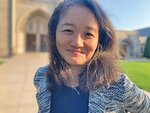
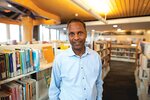
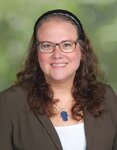
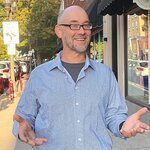

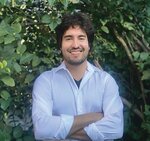
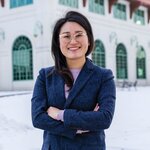
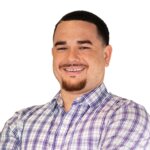
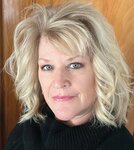
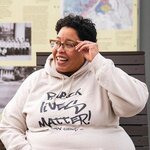
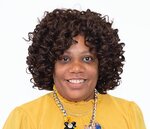
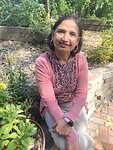
Comments
No comments on this item Please log in to comment by clicking here